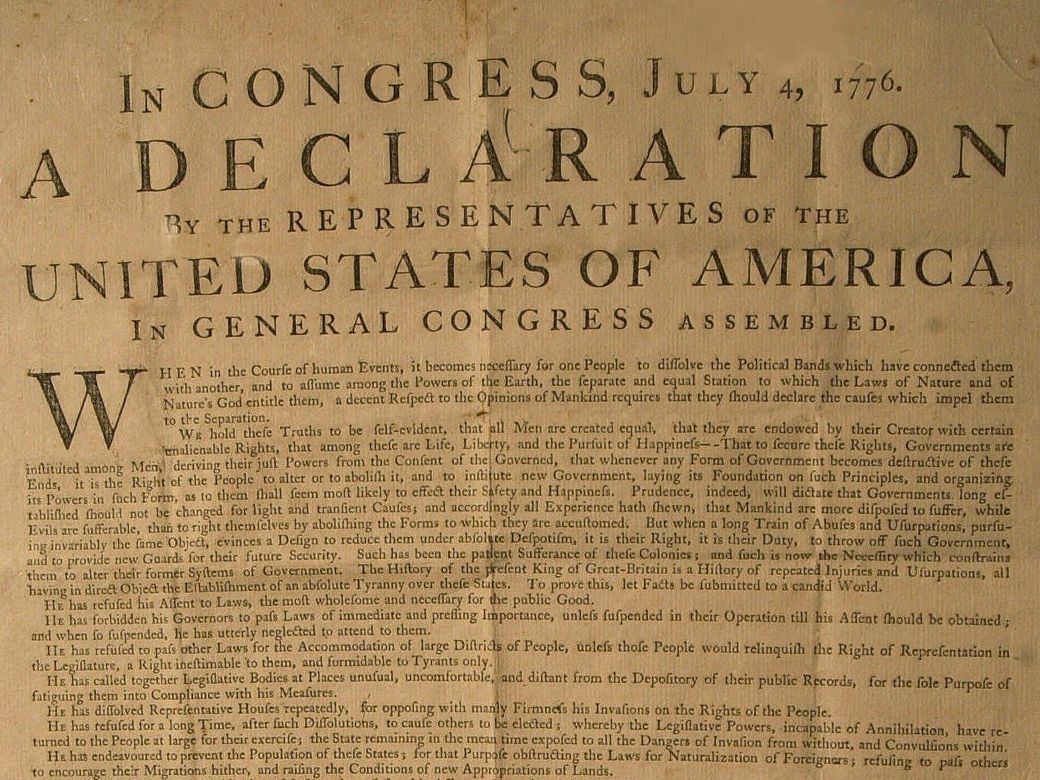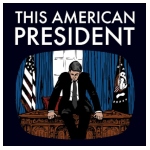This post provides a Declaration of Independence summary, along with the historical content of the Declaration, the reception, and its long-term impact on domestic and global politics.
Congress Moves Toward Independence
-
- May 1776: Congress gave a general sanction for the colonies to form new governments and declared the crown’s control over the colonies to be “totally suppressed.” One by one, the colonies did this.
- Some declared themselves independent states. They sent new delegates to Congress and urged Congress to declare the colonies independent.
- In June, Richard Henry Lee of VA offered a resolution that would declare independence. It passed.
- Congress formed committees to devise a plan for a confederation of the states, to seek out foreign alliances, and to write a formal declaration of independence.
- The latter committee consisted of Roger Sherman, Robert Livingston, Benjamin Franklin, John Adams, and Thomas Jefferson. Jefferson was selected to write the declaration, and once he was done, the other members suggested corrections.
- On July 2, Congress voted to declare independence from Great Britain.
- John Adams: “The Second Day of July 1776 will be the most memorable Epocha, in the History of America. . . . It ought to be solemnized with Pomp and Parade, with Shews, Games, Sports, Guns, Bells, Bonfires, and Illuminations from one End of this Continent to the other from this Time forward forever more.”
The Declaration: Excerpt 1 and Commentary
-
- “When in the Course of human events, it becomes necessary for one people to dissolve the political bands which have connected them with another, and to assume among the powers of the earth, the separate and equal station to which the Laws of Nature and of Nature’s God entitle them, a decent respect to the opinions of mankind requires that they should declare the causes which impel them to the separation.”
- Jefferson produced a memorable and compelling statement of both American independence and the ideas underlying it.
- Jefferson cast his words as an Enlightenment and republican statement.
- Here Jefferson declared that Independence occurs as a human event, in human history, not divine wonders or miracles.
- Governments are created by people, not sent from God. As such, they can be changed whenever people feel it is necessary. These ideas come (mostly) from John Locke.
- Within this course of human events, certain events become necessary. Some things are inevitable. What events have made independence necessary?
- To answer this question, Jefferson appealed to natural rights. He called them “self-evident” or obvious. There is a universal foundation for human rights.
The Declaration: Excerpt 2 and Commentary
-
- “We hold these truths to be self-evident, that all men are created equal, that they are endowed by their Creator with certain unalienable Rights, that among these are Life, Liberty and the pursuit of Happiness.”
- No one can take these rights away. The first task of government is to make these rights secure.
The Declaration: Excerpt 3 and Commentary
-
- “The history of the present King of Great Britain is a history of repeated injuries and usurpations, all having in direct object the establishment of an absolute Tyranny over these States. To prove this, let Facts be submitted to a candid world.”
- Most of the document focuses on the king’s abuses of power. “He has.” Examples include:
- “He has dissolved Representative Houses repeatedly, for opposing with manly firmness his invasions on the rights of the people.”
- “He has kept among us, in times of peace, Standing Armies without the Consent of our legislatures.”
- “He has plundered our seas, ravaged our Coasts, burnt our towns, and destroyed the lives of our people.”
- He is at this time transporting large Armies of foreign Mercenaries to compleat the works of death, desolation and tyranny, already begun with circumstances of Cruelty & perfidy scarcely paralleled in the most barbarous ages, and totally unworthy the Head of the civilized nation.”
- “In every stage of these Oppressions We have Petitioned for Redress in the most humble terms: Our repeated Petitions have been answered only by repeated injury. A Prince whose character is thus marked by every act which may define a Tyrant, is unfit to be the ruler of a free people.”
The Declaration: Conclusion
“We, therefore, the Representatives of the united States of America, in General Congress, Assembled, appealing to the Supreme Judge of the world for the rectitude of our intentions, do, in the Name, and by Authority of the good People of these Colonies, solemnly publish and declare, That these United Colonies are, and of Right ought to be Free and Independent States; that they are Absolved from all Allegiance to the British Crown, and that all political connection between them and the State of Great Britain, is and ought to be totally dissolved; and that as Free and Independent States, they have full Power to levy War, conclude Peace, contract Alliances, establish Commerce, and to do all other Acts and Things which Independent States may of right do. And for the support of this Declaration, with a firm reliance on the protection of divine Providence, we mutually pledge to each other our Lives, our Fortunes and our sacred Honor.”
Aftermath
-
- After the committee made a few revisions to the Declaration. Congress adopted the declaration as its official statement. This was on July 4, 1776.
- The colonies soon began to quarrel among themselves. The new states fought for control over land, especially land west of the Appalachian Mountains.
- In the end, a compromise was reached: all states ceded their rights to unclaimed land to Congress.
- Congress sent ambassadors to France and Spain to try and form alliances and get military aid.
- Benjamin Franklin: “We must all hang together, or assuredly we shall all hang separately.”
- It was one thing to declare independence, but another to actually gain it.
Additional Resources About Revolution and Colonies
Cite This Article
"Declaration of Independence Summary" History on the Net© 2000-2024, Salem Media.
July 27, 2024 <https://www.historyonthenet.com/declaration-independence-summary>
More Citation Information.







